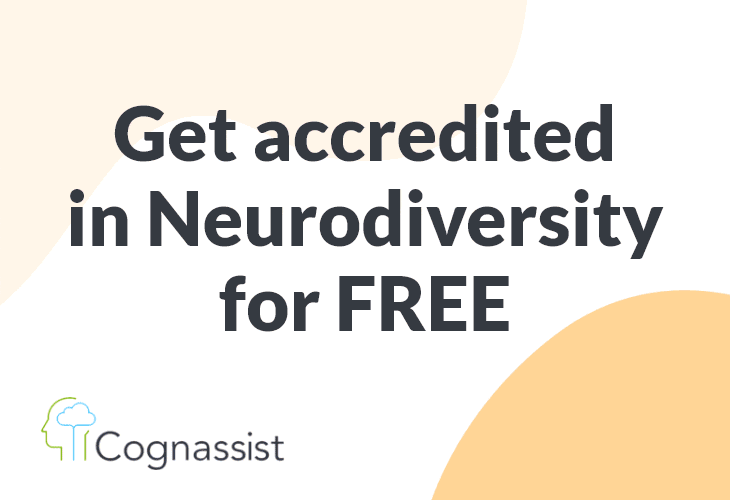How to support neurodiverse learners: #4 Executive Function

Executive function covers a range of processes that allow us to perform some of our more complex cognitive tasks, like maintaining concentration, reasoning and analysis and multitasking.
These are clearly vital skills for learning and work.
Difficulties with executive function can cause noticeable behaviours, like:
- Consistent trouble focusing attention.
- Difficulty identifying and communicating exactly what it is about a subject or learning in general that we struggle with.
- Being easily distracted.
- Problems with prioritising or working to multiple deadlines.
Our top three tips for supporting a need in executive function
#1 Make a checklist
This can be a great way for learners to visualise a task from start to finish, which helps them to maintain their attention on a task and see it through until the end. It also breaks it down and helps learners to analyse the task and potentially see where they may have missed a step.
#2 Set realistic goals
The key to setting powerful goals is to try to be realistic and clear. Goals are there to inspire learners, but we can find ways to make them more achievable. If someone can’t see how they’re going to achieve a goal, they run the risk of being unable to complete it, which defeats the purpose of setting goals in the first place. It can help to make sub-goals, which create more manageable steps and improves learners’ ability to visualise how they will achieve longer-term goals and success.
#3 Practice ways of focusing attention
There are many small ways in which we can remove distractions and improve our attention. This can include working in a quiet room, simply pausing to take a deep breath or a short break, meditating for 10 minutes a day or focusing on one task at a time.
There is an increasing body of scientific evidence to suggest that mindful mediation reduces stress, anxiety and depression, as well as increasing people’s memory and some cognitive skills.
Another handy trick that we can all use but is particularly useful for people who may need support with their executive function is to try out social media restriction apps, which prevent us from accessing our preferred social media platforms within stated hours.
Encouraging learners in these activities are likely to be more effective than telling people to just “pay attention.”
Dr. Louise Karwowski, Head of Science, Cognassist
So, what’s next?
We’re about to bring you something very exciting. A serialised set of guides on how to identify and support learners with a need in the eight key cognitive domain.
How to support neurodiverse learners: |
We’ll be posting one guide a week, rounding up with a podcast with Dr Louise Karwowski, Head of Science at Cognassist, who will discuss the importance of starting the conversation about neurodiversity with your staff and learners.
If you like the sound of understanding more about neurodiversity, you can register for free for the NCFE endorsed Neurodiversity Masterclass here:
You can also check out the full guide How to support Neurodiverse learners now.


Responses